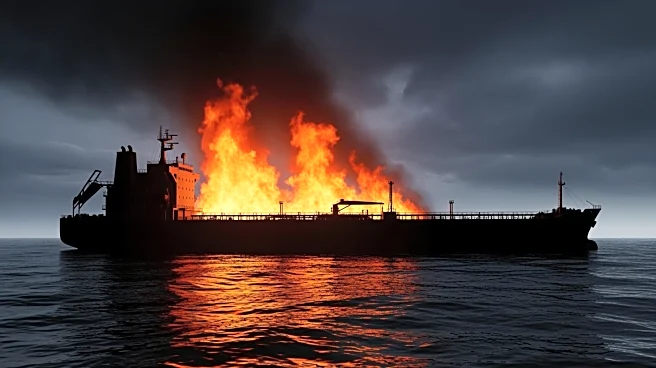What's Happening?
A fire erupted on the LPG-laden tanker MV Falcon off the coast of Yemen, following an explosion that forced the crew to abandon the vessel. The European Union's naval force Aspides reported that the explosion was likely accidental, with no missiles or drones
detected in the area. The tanker, flagged under Cameroon, was carrying liquefied petroleum gas and posed a significant navigational hazard. Rescue operations have recovered 24 out of 26 crew members, with two still missing. The incident occurred as the tanker was en route from Oman's Sohar Port to Djibouti, approximately 113 nautical miles southeast of Aden, Yemen.
Why It's Important?
The incident highlights the ongoing risks in the Gulf of Aden, a critical maritime route for global trade. The area has been a hotspot for maritime security threats, including piracy and attacks by Houthi militants. Although the Houthi group denied involvement, the event underscores the vulnerability of shipping lanes in conflict-prone regions. The disruption could impact shipping schedules and insurance costs, affecting global supply chains. The safety of maritime workers and the environmental risks posed by such incidents are also significant concerns.
What's Next?
Authorities are likely to investigate the cause of the explosion further, while maritime security in the region may be heightened. Shipping companies might reassess their routes and security measures to mitigate risks. The incident could prompt international discussions on enhancing maritime safety protocols in the region.

















